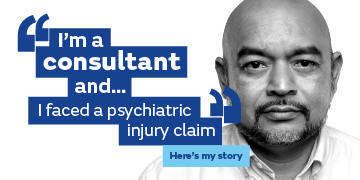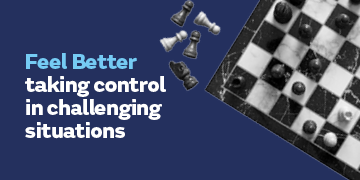Case study: A request for advice after doctors encounter a road traffic accident
Post date: 15/02/2023 | Time to read article: 2 minsThe information within this article was correct at the time of publishing. Last updated 27/06/2023
Retired consultant Dr Gibbons* and his registrar daughter Dr Brinkley* contact Medical Protection when they receive a request from Coroner for statements.
Dr Gibbons and Dr Brinkley had been out walking down an icy country lane when they found a motorcyclist lying in a ditch next to his bike. They called 999 and were informed that an ambulance would be sent. While waiting for help to arrive, the patient’s condition deteriorated, and they became concerned about his airway and breathing. They tried to reposition the patient to enable assessment and intervention but encountered some difficulty due to the terrain. The patient suddenly arrested and sadly died despite prolonged resuscitation.
How Medical Protection helped
A few months later the Coroner wrote to the doctors to request statements. When they contacted Medical Protection for help, we appointed a medicolegal consultant (MLC) who provided advice on the structure and content of the statements, bearing in mind that there would likely be an inquest in due course. The MLC talked them through the inquest process and advised the doctors to let her know if they were called to give evidence.
Dr Brinkley shared her concern that they may possibly face accusations for inadvertently caused the death when trying to move the patient. She was understandably distressed at the thought of this, and also worried that the family may try to sue her and her father. Dr Brinkley was informed that Medical Protection would offer support should the family take legal action, and reassured that there is legislation in place that affords some protection to those acting as a Good Samaritan (Action, Responsibility and Heroism Act 2015).
How did it end?
Dr Brinkley was subsequently asked to attend the inquest as a factual witness. Her MLC provided advice on giving evidence and what to expect on the day, resulting in the inquest passing uneventfully.
Take aways
Medical Protection provides its members with assistance for processes arising as a result of a Good Samaritan act. This applies no matter where in the world any action is brought.
Members who retire, take a career break or otherwise stop practising medicine voluntarily (either temporarily or permanently) can ask to retain their Medical Protection membership in the retired/deferred category. This lasts indefinitely. As a retired or deferred member with occurrence-based protection, you pay no subscription but can still apply for assistance with any medicolegal issues arising from a Good Samaritan act.
The Social Action, Responsibility and Heroism Act 2015 provides some protection for any person who performs a Good Samaritan act. This legislation means that the court will take a full and sympathetic account of the actions of the person performing the act in the event that something goes wrong and they are sued.
In an emergency situation, there is no legal obligation on a doctor to assist. However, paragraph 26 of the GMC’s Good Medical Practice states:
“You must offer help if emergencies arise in clinical settings or in the community, taking account of your own safety, your competence and the availability of other options for care.”
Those involved in a Good Samaritan act may wish to prepare a factual account of events while they are fresh in their mind in case a statement is later required.
By Dr Lucy Hanington, Medicolegal Consultant at Medical Protection
Not a member already? Click here to join.
*Names and locations have been changed to protect member confidentiality.


